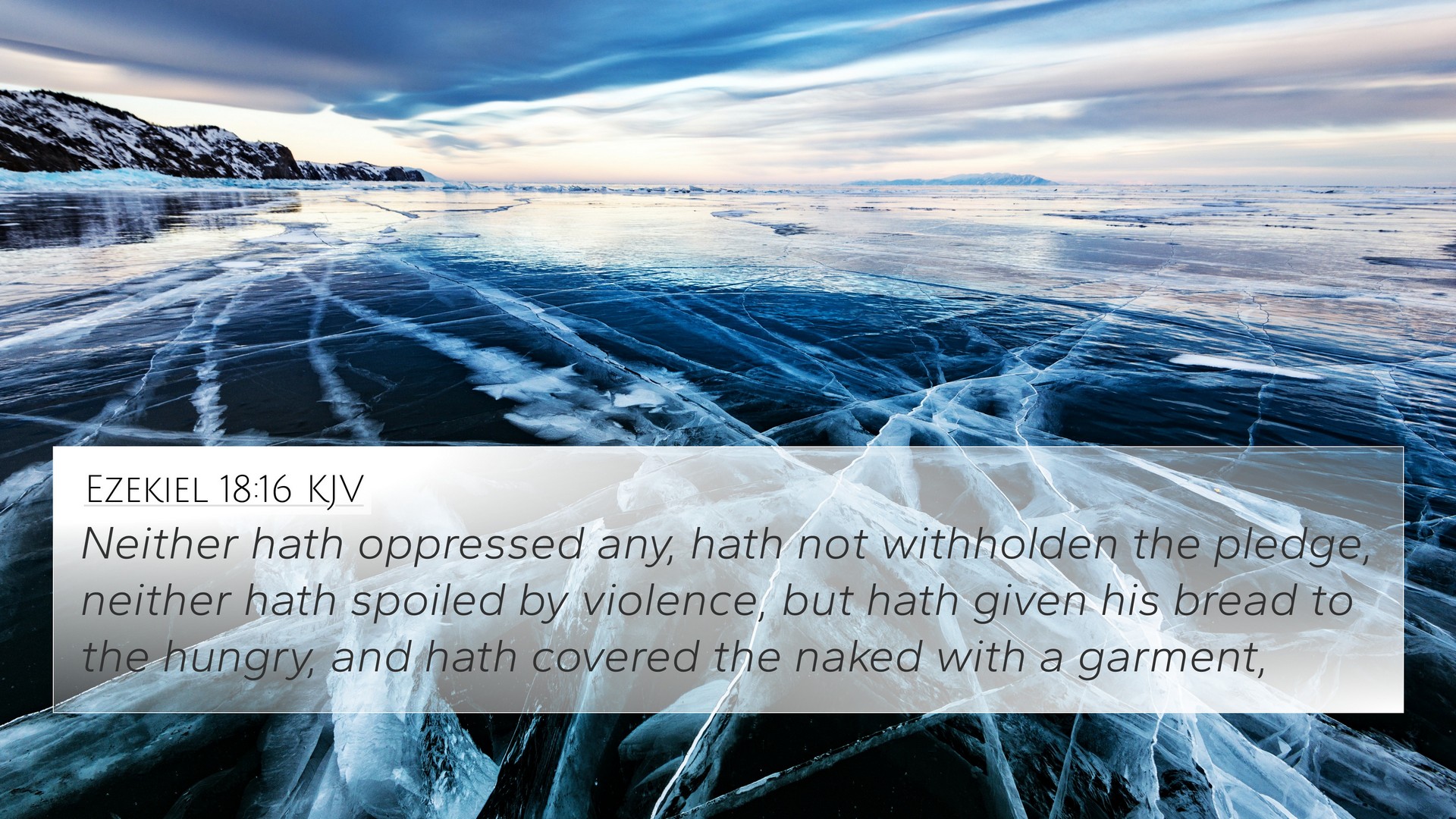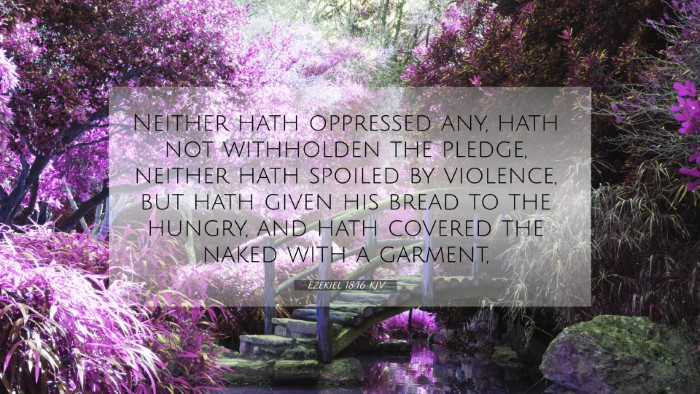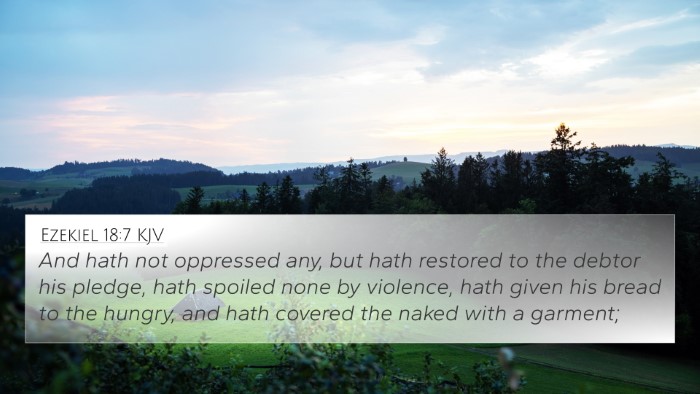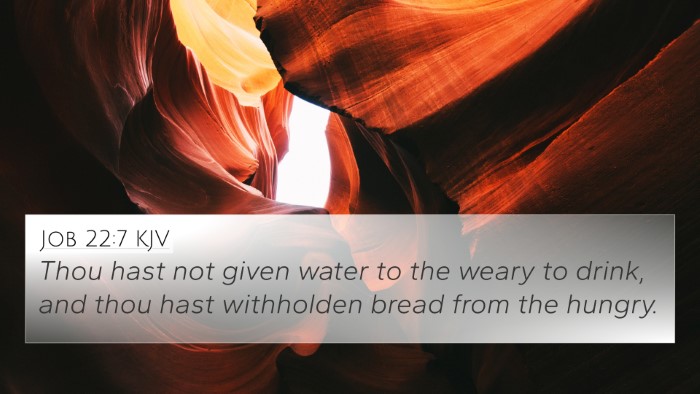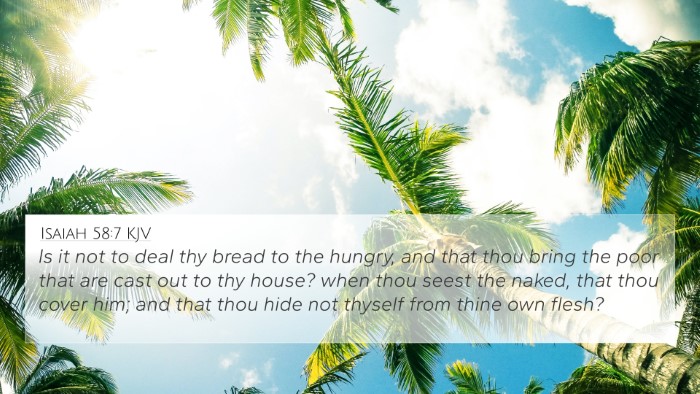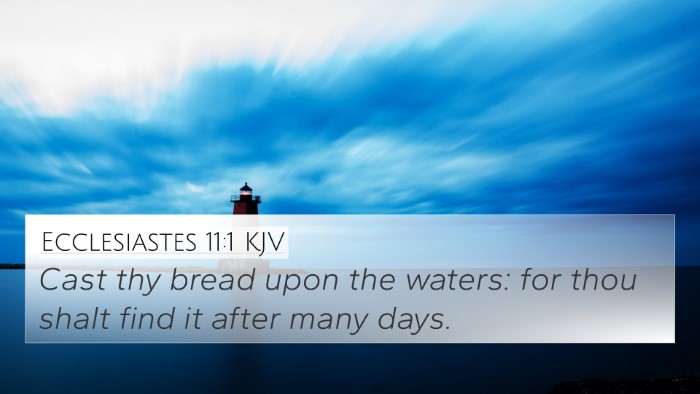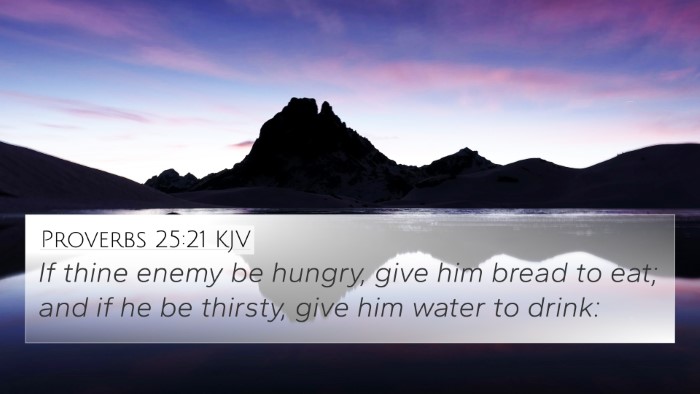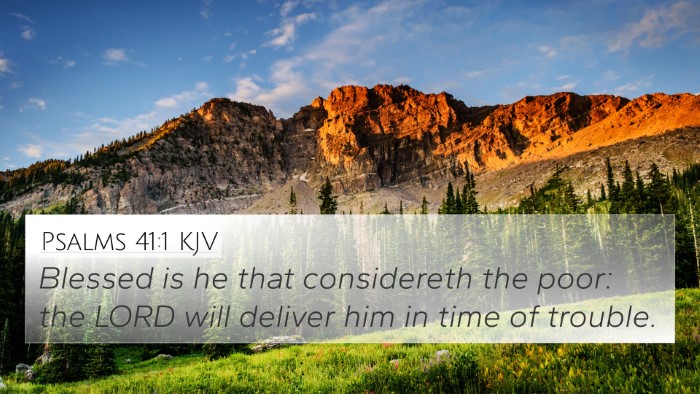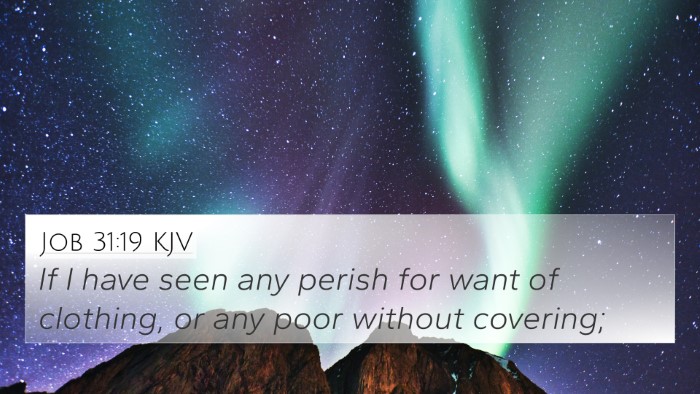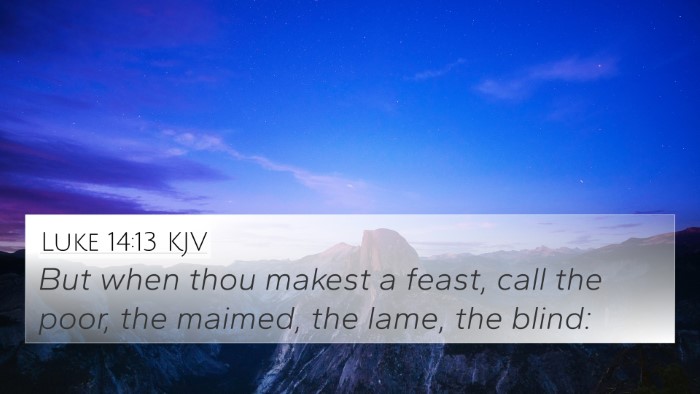Ezekiel 18:16 Explained
The Bible verse Ezekiel 18:16 states:
"Neither shall he oppress any, but shall restore to the debtor his pledge, and shall spoil none by violence, but shall give his bread to the hungry, and shall cover the naked with a garment."
Understanding the Context of Ezekiel 18:16
This verse is part of a broader passage in Ezekiel 18 that emphasizes individual responsibility and righteousness. It outlines the characteristics of a just person, contrasting them with the unrighteous, and highlighting that each individual is accountable for their own actions.
Summary of Insights from Public Domain Commentaries
We draw insights from various public domain commentaries to better understand the meaning of this verse.
Matthew Henry's Commentary
Henry emphasizes the moral obligations of individuals to act righteously. He notes:
- Social Justice: The verse focuses on the importance of social equity—repaying debts and not exploiting others.
- Compassion: It highlights the need for kindness, showcasing the virtue of sharing food and clothing with those in need.
- Restoration: The call for restoring a debtor's pledge reflects a commitment to fairness and integrity in one's dealings.
Albert Barnes' Commentary
Barnes interprets this verse as a clear guideline for ethical behavior:
- Against Oppression: There is a strong admonition against oppression and unjust practices that harm the vulnerable.
- Personal Responsibility: Each person's deeds reflect their character, and they will be judged accordingly.
- Charity as a Virtue: Charity is not merely a suggestion but a requirement of righteous living.
Adam Clarke's Commentary
Clarke elaborates on various social implications:
- Four Pillars of Righteousness: Clarke identifies key aspects: not oppressing others, restoring debts, not resorting to violence, and aiding the needy.
- Ethical Conduct: This verse serves as a foundational ethical instruction for relationships within society.
- Spiritual Significance: The actions described also carry spiritual weight, influencing one's relationship with God.
Key Themes in Ezekiel 18:16
From the combined insights, several themes emerge:
- Justice and Equity: A broad principle that aligns with God's character and expectations for humanity.
- Compassionate Living: The imperative to care for the impoverished and respond to their needs.
- Individuality in Responsibility: Each person's actions determine their standing before God.
- Restitution: The principle of making right any wrongs done in financial and personal matters.
Bible Cross-References for Ezekiel 18:16
For a deeper understanding of how Ezekiel 18:16 relates to other scriptures, here are several noteworthy cross-references:
- Leviticus 19:13: "You shall not oppress your neighbor or rob him." This highlights the same moral principles against exploitation.
- Psalm 112:5: "It is well with the man who deals generously and lends." This reinforces the virtue of generosity.
- Matthew 5:42: "Give to the one who asks you, and do not turn away from the one who wants to borrow from you." A call to action in charitable giving.
- James 1:27: "Religion that God our Father accepts as pure and faultless is this: to look after orphans and widows in their distress." Emphasizes caring for those in need.
- Luke 3:11: “Whoever has two tunics is to share with him who has none.” This encourages acts of kindness and sharing.
- Proverbs 28:8: “Whoever multiplies wealth by taking interest or profit from the poor gathers it for him who is generous to the poor.”
- 1 John 3:17: "But if anyone has the world's goods and sees his brother in need, yet closes his heart against him, how does God's love abide in him?"
Inter-Biblical Dialogue
The verse encourages a dialogue between various parts of Scripture:
- The prophetic call for justice in Ezekiel parallels the teachings of Jesus and the apostles on ethical living.
- The themes of generosity found throughout the Old Testament resonate in the New Testament’s teachings on charity.
- Connections between the teachings in Proverbs and the ethical imperatives in the Gospels demonstrate inter-Biblical consistency.
Applications for Today
In modern society, Ezekiel 18:16 can inspire numerous practical applications:
- Advocacy for Justice: Implementing fair treatment and restorative justice systems.
- Community Service: Engaging in actions that alleviate poverty and provide for the needy.
- Personal Integrity: Upholding honesty and transparency in all dealings.
Final Thoughts on Ezekiel 18:16
This verse serves as a profound reminder of individual responsibility and the call to live a life marked by integrity, justice, and compassion. By cross-referencing with other Biblical texts, we can enrich our understanding and application of God's Word in our lives.
